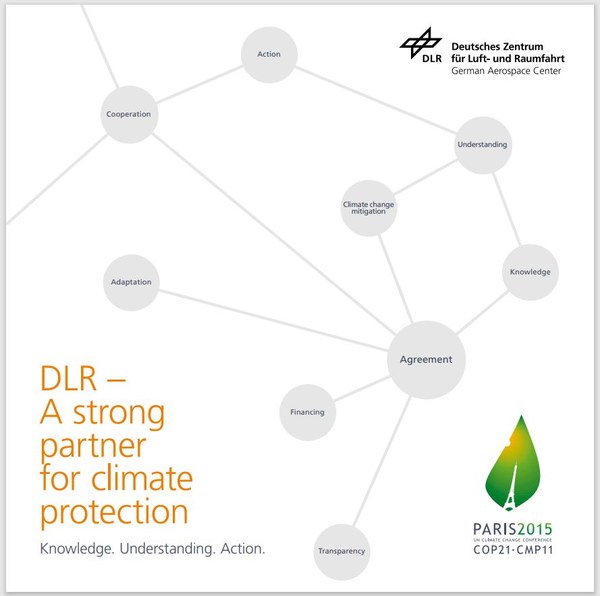Diverse commitment to climate research: Chair of the DLR Executive Board attends the United Nations Climate Change Conference

During the 2015 United Nations Climate Change Conference in Paris, the international community agreed to limit global warming to below two degrees Celsius above preindustrial levels. This represents a breakthrough in the negotiations for a global agreement, the implementation of which is currently being discussed at the 22nd Conference of the Parties (COP22) to the UN Framework Convention on Climate Change (UNFCCC) in Marrakesh/Morocco. On 11 November, Pascale Ehrenfreund, Chair of the German Aerospace Center (Deutsches Zentrum für Luft- und Raumfahrt; DLR) Executive Board, presented the numerous contributions that DLR is making to the achievement and monitoring of the international climate targets.
"We need fundamental research, new technologies and the detailed analysis of climate data now more than ever," emphasised Ehrenfreund at the conference during a round table discussion between space agencies. "DLR's more than 8000 employees are reliable partners and drivers of innovation in finding answers to these questions." At its 16 sites, it conducts research from the basics through to application of technologies to reduce emissions, and DLR researchers refine the observation of greenhouse gases and conduct climate system research. "DLR benefits in particular from the synergy between its research areas of aeronautics, space, energy and transport to develop comprehensive solutions for climate protection," Ehrenfreund added. DLR recently published a brochure that presents DLR’s contributions to climate research.
Vital climate data
The DLR fleet of research aircraft, for example, provides climate researchers with high-performance platforms. The flagship High Altitude and Long Range Research Aircraft (HALO) is deployed in partnership with other research institutions to conduct in-flight experiments to investigate the complex processes of climate change, for instance in the polar atmosphere. With the airborne lidar measurement system CHARM-F on HALO, DLR is able to detect methane sources independently of measurement stations on the ground. "The success of a global climate agreement will also depend on an independent and globally uniform measurement of relevant climate gas emissions that fosters trust between the contracting parties," explained Ehrenfreund. "The French-German satellite mission MERLIN is currently in development under the leadership of DLR. From 2021, its purpose will be to help the international community achieve a breakthrough in the detection of regional and global emissions of the greenhouse gas methane."
A unique competence spectrum at DLR
As a research centre, project management organisation and aerospace agency, DLR possesses a unique spectrum of excellence in the field of climate change. Its expertise ranges from climate- and research policy with regard to innovative climate protection technologies in aviation, transport and energy, through to the planning and implementa¬tion of the German space programme, which is carried out by the DLR Space Administration. This spectrum of expertise makes DLR a central point of contact for the German Federal Government, in particular where cli¬mate, research and innovation policy overlap.
The DLR Project Management Agency is also attending the United Nations World Climate Conference COP22 in Marrakesh to support the German delegation in scientific issues. The DLR Project Management Agency provides the Federal Ministry of Education and Research (BMBF) and the Federal Environment Ministry (BMUB) with advisory services on the interface between climate science and climate policy. DLR also represents the Federal Government in statutory tasks and carries out important mediation work, for ex¬ample in the European and international aerospace sectors, or at the interface between the United Nations Framework Convention on Climate Change (UNFCCC), the Intergovernmental Panel on Climate Change (IPCC), the European and German energy and climate policy sector, and the relevant research landscape. DLR thus contributes to the implementation of the Federal Government's energy and climate policy programmes through its extensive knowledge, technological innova¬tion and impartial advice.

